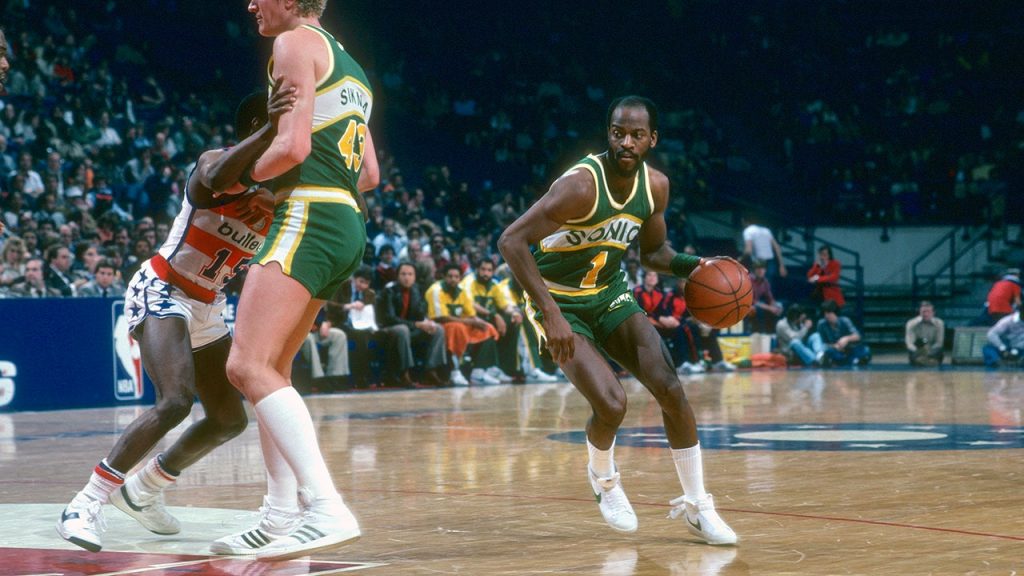Gus Williams, a two-time NBA All-Star and a pivotal figure in the Seattle SuperSonics’ sole NBA championship victory, has passed away at the age of 71. Williams, whose dynamic playing style and scoring prowess electrified fans throughout his career, succumbed following a period of declining health after suffering a debilitating stroke nearly five years prior. At the time of his passing, Williams was residing in a care facility in Baltimore, and while the precise cause of death remains undisclosed, his brother indicated that his body had simply given way in the final days. Williams’ legacy is inextricably linked to the Sonics’ triumphant 1979 championship run, where he led the team in scoring, averaging an impressive 26.7 points per game during the playoffs. His electrifying performances cemented his place as a cornerstone of the franchise’s most celebrated era.
Williams’ basketball journey began with the Golden State Warriors, who selected him in the second round of the 1975 NBA Draft. He wasted no time in making an impact, earning a spot on the NBA All-Rookie Team and finishing as the runner-up in the Rookie of the Year voting. After two seasons with the Warriors, Williams embarked on the chapter of his career that would define his legacy, signing with the Seattle SuperSonics in 1977. It was in Seattle that Williams truly blossomed, solidifying his reputation as one of the league’s most electrifying and impactful guards. His ability to create scoring opportunities, combined with his tenacious defense, made him a formidable force on both ends of the court.
The 1979 NBA Finals marked the pinnacle of Williams’ career and the crowning achievement for the Sonics franchise. Williams’ leadership and scoring prowess were instrumental in overcoming the Washington Bullets, securing Seattle’s first and only NBA title. His playoff performance, marked by a 26.7 points per game average, solidified his status as a clutch performer and a true champion. This victory remains a cherished memory for Sonics fans, forever etching Williams’ name into the franchise’s history.
However, Williams’ career was not without its complexities. A contract dispute led to him sitting out the entire 1980 season, a decision that underscored his commitment to securing a fair deal. Despite this setback, Williams returned to the court the following season with a vengeance, finishing fifth in the MVP voting and earning the NBA Comeback Player of the Year award. This resurgence demonstrated his resilience and unwavering dedication to the game, reaffirming his status as one of the league’s premier talents.
Following his tenure with the Sonics, Williams concluded his NBA career with the Atlanta Hawks in 1987. His contributions to the game were formally recognized in 2004 when the Sonics retired his jersey, a testament to his enduring impact on the franchise and the city of Seattle. The news of Williams’ passing resonated throughout the NBA community, with tributes pouring in on social media from former teammates, opponents, and fans alike. His legacy as a dynamic scorer, a clutch performer, and an NBA champion will forever be remembered.
Williams’ journey from a second-round draft pick to an NBA champion is a testament to his talent, dedication, and resilience. His time with the Sonics, particularly the championship run of 1979, remains a defining moment in the franchise’s history. While his career was marked by both triumphs and challenges, his impact on the game and the city of Seattle is undeniable. His passing marks the loss of a true basketball icon, whose memory will continue to inspire generations of players and fans. The funeral services for Gus Williams, a beloved figure in the basketball world, will be held in his hometown of Mount Vernon, New York, providing a final opportunity for family, friends, and fans to pay their respects and celebrate his remarkable life and career.

